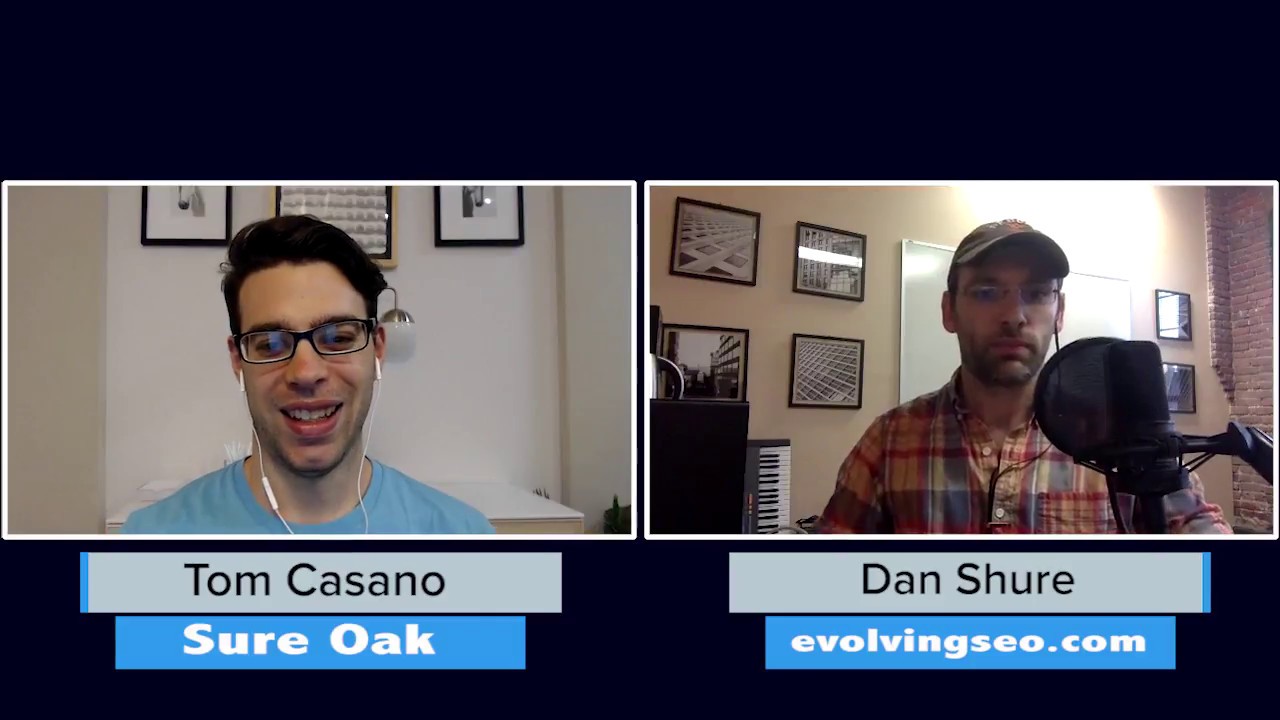SEO Tips for 2018 with Dan Shure
Search Engine Optimization Tips
How do you rank a keyword with 10 searches a month and get thousands of monthly page views?
Dan Shure, from Evolving SEO podcast and blog, lays out how use an SEO content strategy to rank a keyword in 10 searches a month and more in this week’s podcast. Rank higher and get more page views by implementing Dan’s commonly missed on page factors, discover how Google is changing off page SEO factors, and learn surprising SEO link building tricks.
On Page SEO Ranking Factors
With the 200+ ranking factors, it’s difficult to determine the crucial ones. Dan highlighted four commonly missed but top ranking factors.
1. Keyword Alignment
First things first:
Understand your SEO keywords and know what you want the page to rank for.
Seems obvious, right? But, Dan often finds clients who want to rank for a keyword, but don’t actually have content to support it.
Find your target keyword and create content with ranking in mind. You’ll need to understand your business’ audience, their searches, research on current ranking sites, and more to properly align your keyword and your content.
2. Keyword Placement
Once you have the content, you need to ensure the keyword is included in a few key spots. It doesn’t need to be plastered in every possible location.
Dan recommends these places:
Title tag
URL
Top heading (H1)
(A little bit) in the content
Don’t need to obsess over alt-tags and other headers. Focus on getting your keyword in the places that matter.
3. User Experience
“2017 was the year that Google cleaned house on web pages designed to get users to do what you wanted, not what the user wanted to do,” Dan shares.
A lot of successful websites were penalized for being focused on the site’s goal. Sites with distracting sidebars, sites designed to get emails, mobile sites with pop-ups all ranked lower because they were not user-focused.
Design (or redesign) your site with a strong focus on supporting the user to avoid these penalties.
4. Comments
While a number of major websites have removed the comments tool, Dan warns against following their lead.
“Google has confirmed on a few occasions comments are indeed a ranking factor.” They are a sign of community and engagement, which Google values in their algorithms.
He recommends maintaining the comments section and creating content that is comment-worthy to build genuine engagement.
https://www.sureoak.com/seo-ranking-factors/
How do you rank a keyword with 10 searches a month and get thousands of monthly page views?
Dan Shure, from Evolving SEO podcast and blog, lays out how use an SEO content strategy to rank a keyword in 10 searches a month and more in this week’s podcast. Rank higher and get more page views by implementing Dan’s commonly missed on page factors, discover how Google is changing off page SEO factors, and learn surprising SEO link building tricks.
On Page SEO Ranking Factors
With the 200+ ranking factors, it’s difficult to determine the crucial ones. Dan highlighted four commonly missed but top ranking factors.
1. Keyword Alignment
First things first:
Understand your SEO keywords and know what you want the page to rank for.
Seems obvious, right? But, Dan often finds clients who want to rank for a keyword, but don’t actually have content to support it.
Find your target keyword and create content with ranking in mind. You’ll need to understand your business’ audience, their searches, research on current ranking sites, and more to properly align your keyword and your content.
2. Keyword Placement
Once you have the content, you need to ensure the keyword is included in a few key spots. It doesn’t need to be plastered in every possible location.
Dan recommends these places:
Title tag
URL
Top heading (H1)
(A little bit) in the content
Don’t need to obsess over alt-tags and other headers. Focus on getting your keyword in the places that matter.
3. User Experience
“2017 was the year that Google cleaned house on web pages designed to get users to do what you wanted, not what the user wanted to do,” Dan shares.
A lot of successful websites were penalized for being focused on the site’s goal. Sites with distracting sidebars, sites designed to get emails, mobile sites with pop-ups all ranked lower because they were not user-focused.
Design (or redesign) your site with a strong focus on supporting the user to avoid these penalties.
4. Comments
While a number of major websites have removed the comments tool, Dan warns against following their lead.
“Google has confirmed on a few occasions comments are indeed a ranking factor.” They are a sign of community and engagement, which Google values in their algorithms.
He recommends maintaining the comments section and creating content that is comment-worthy to build genuine engagement.
source

